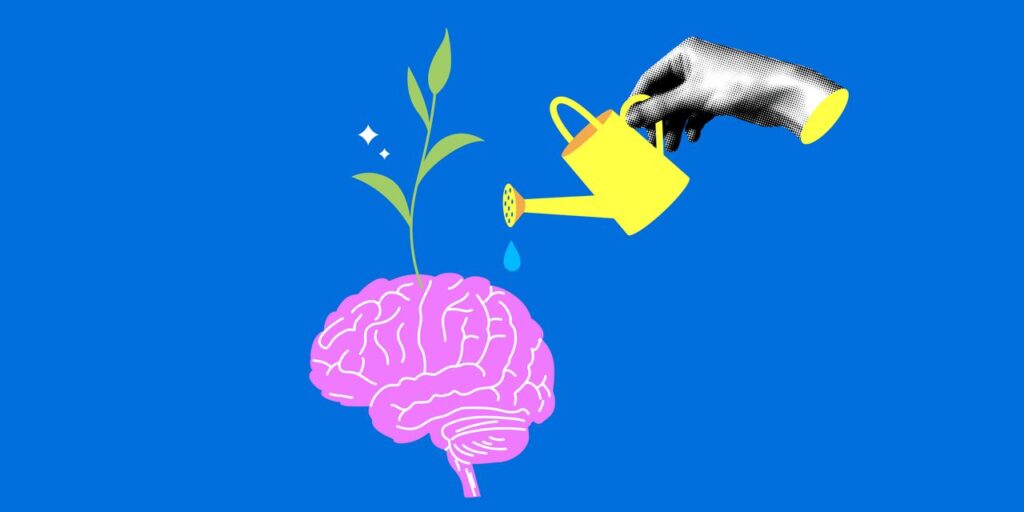“If you’ve ever studied for six hours in a row, you are beat,” says Dr. Muñoz. “Your brain has actually been processing that whole time. It’s this pretty sizable organ, and it’s building connections. It’s using energy to form new tracks.”
3. They prioritize the proper nutrients.
“I’m not going to lie and say I don’t enjoy my treats,” says Dr. Muñoz. “But what I advocate for is lots of fruits and vegetables, lots of whole grains, and lean meats.” That’s because research shows that a healthy, nutrient-rich diet is associated with a lower risk of cognitive decline.
While there’s no particular diet that’s right for everyone, a few brain-healthy staples that came up time and again in our interviews included antioxidant-rich produce like blueberries and leafy greens, anti-inflammatory foods like olive oil, and foods packed with omega-3 fatty acids like salmon, walnuts, and chia seeds.
Just don’t stress yourself out trying to eat “perfectly” all the time. “I don’t demonize any foods because I find that also leads to problems,” says Dr. Muñoz. “If you don’t like what you’re eating, that’s not a good existence, and you’re not going to stick with it.”
Recently, Dr. Cardiel took a good, hard look at her nutrition habits—and made some tweaks with her brain health in mind. “I definitely started eating more vegetables and basically stopped eating out weekly.” That said, she admits that making the most of your food at home takes more time and preparation, so she’s a big fan of meal prep: grilling poultry on the weekends and steaming some fresh or frozen veggies to pair with it throughout the week. She also makes overnight oats before bed, which she tops with fresh berries in the morning for a quick breakfast.
4. They prioritize sleep.
Outside of maybe med school, you’re unlikely to catch a neurologist pulling an all-nighter. “Sleep is key,” says Dr. Chugh. “Think of your brain as a smartphone. If you forget to charge your smartphone the night before, it’s going to glitch or it’s going to die down in the middle of the day. It’s not going to be efficient.”
We all know that one bad night’s sleep can screw with your brain power the following day, but experts warn that an overall poor sleep quality may also be associated with cognitive decline as you get older. “Over time, we find that people who don’t get enough quality sleep are more at risk for developing neurodegenerative disorders such as dementia,” says Dr. Muñoz. In fact, a 2021 study in the journal Nature Communications found that consistently not getting enough sleep in your 50s, 60s, and 70s is linked to a 30% increased risk of dementia.
Sleep is when a lot of regeneration happens, says Dr. Chugh. It’s also the time when our brains consolidate the information we learned throughout the day into our long-term memory, she says. To that end, she suggests turning your bedroom into a cool, dark, quiet, and device-free oasis at night and aiming for seven to eight hours of shut-eye.
5. They spend time with their people.
Social connections are good for the soul, but they’re also pretty vital for your brain—especially as we age. This is something we unfortunately saw the effects of during the pandemic, as many elderly individuals weren’t able to keep up their social routines or even spend time with their loved ones, Dr. Cardiel says. One systematic review and meta-analysis published in 2023 found that older adults both with and without dementia experienced worsening cognitive functioning during social isolation.


